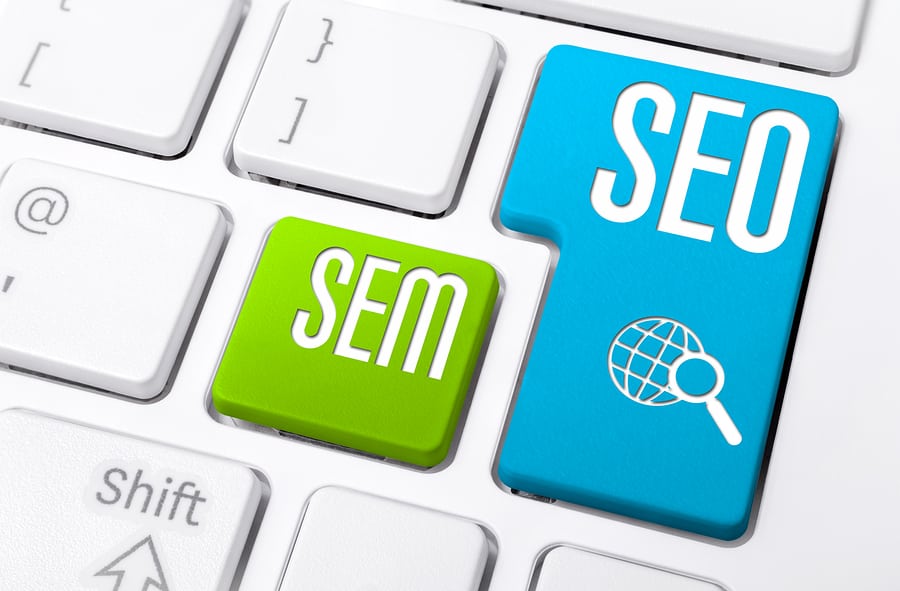To those new to the world of search engines and digital marketing, the terms “SEO” and “SEM” can often seem like alphabet soup — a bunch of letters thrown around with meanings that are hard to discern from one another.
Learning the differences between the two terms is important to the success of your marketing efforts, as being able to effectively navigate your way to the top of search engine results pages (SERPs) is dependent on your ability to craft strong strategies when it comes to both SEM and SEO.
What Is SEM?
There is a little confusion and consistency when it comes to what SEM, or search engine marketing, refers to and what it doesn’t, but SEM typically refers to paid search advertising where marketers pay search engines for ads to appear on SERPs.
SEM focuses on paid search listings, commonly referred to as pay-per-click (PPC) or cost-per-click (CPC) ads. In SEM, advertisers make bids on keywords that users of search engines use in their queries when looking for goods or services.
SEM allows advertisers and businesses to place their information right where customers want to see it, creating a valuable opportunity for new business.
So how does SEM work? A very simplified version of the SEM process looks like this: advertisers make bids in an auction-like atmosphere to buy advertising that they will pay for each time a user clicks the ad. Hence the name pay-per-click advertising. Cost-per-click is the metric used to determine how much an advertiser pays when a user clicks on the ad.
SEM can be a complicated and tricky process, which is why it is recommended that you work with professionals trained in Google AdWords, Bing Ads and other platforms that offer paid search advertising opportunities to get the best return on your investment.
What Is SEO?
SEO, or search engine optimization, is the not-too-distant cousin of SEM. SEO very literally means optimizing your content to perform better on SERPs through organic means — that is, without having to pay for better results.
This can be done through a variety of tactics, with both on-page and off-page SEO making a difference in your website’s ranking on SERPs. For the purpose of this post, we’ll stay focused on on-page SEO, but we do have an informative guide to getting started with off-page SEO, if you’re interested.
There are a series of factors that can increase the organic ranking of your website, if optimized correctly for search engines. These include using the proper keywords in page titles, meta descriptions and meta tags as well as using internal links on pages that send users to other parts of your website. These are all areas where you can tailor your website to search engines and improve the rankings of your business on Google, Bing and other engines.
The beauty of SEO is that it doesn’t have to cost anything! All you need to focus on is designing your website and its content to be more search engine-friendly.
The Difference
The one thing to remember about these two techniques is that SEM is paid search advertising, whereas SEO relies on ways you can better design your website and its content to appear higher, naturally, in SERPs.
For help navigating the challenging worlds of SEM and SEO, Strunk Media Group’s search engine experts can help you and your business get the traffic and business you’re looking for. All you need to do is schedule a free consultation to get started today.

